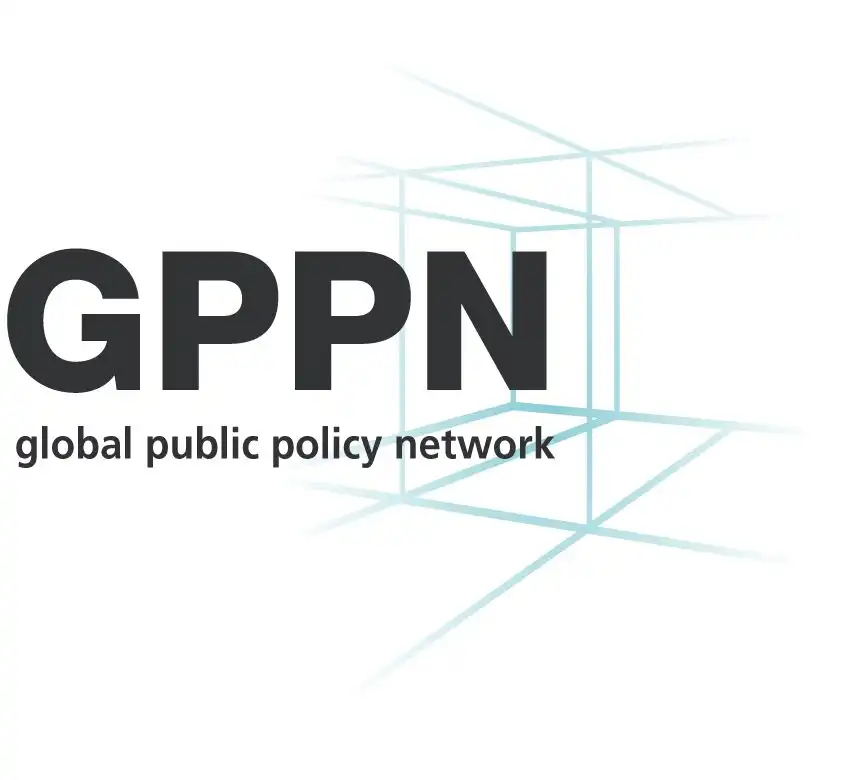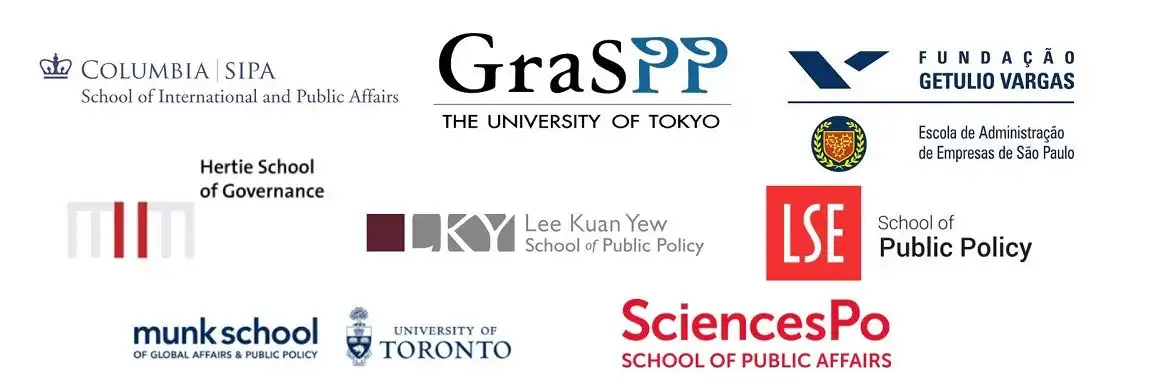
Home>Policy Lab>Global Public Policy Network
Global Public Policy Network

The School of Public Affairs is a member of the Global Public Policy Network (GPPN). Founded in 2005, the GPPN brings together the public affairs schools of eight world-renowned universities (Columbia, LSE, Hertie, GrasPP, Lee Kuan Yew, Fondaçao Getulio Vargas, Munk School, Sciences Po). The network organises an annual conference during which students and deans of member schools exchange on the main global issues related to public affairs. These exchanges contribute to the improvement of training, promote pedagogical innovation, and stimulate research. Members have also set up exchange and dual degree programs to allow their students to benefit from this international network.
About the conference
The theme of the 2026 GPPN Conference is: Reimagining Policy in a Fragmented World.
In an era marked by rising polarization, declining institutional trust, geopolitical tensions, and fragmented governance structures, traditional policy approaches often fall short. How can we design effective policies when societies are divided along political, cultural, economic, and technological lines? How do we build consensus and implement solutions across fractured communities, competing jurisdictions, and divergent value systems?
This conference seeks proposals that grapple with these challenges and offer innovative, actionable policy solutions that bridge divides, foster cooperation, or creatively navigate fragmentation at the local, subnational, federal, or international level.
Students selected to participate will have the opportunity to present their projects to the Deans and faculty of the world’s top policy schools, as well as network with talented peers from around the world.
Theme
As fragmentation intensifies across multiple dimensions—political polarization, economic inequality, digital divides, territorial conflicts, institutional breakdown, and competing narratives—there is an urgent need for policies that can function effectively despite, or even by leveraging, these divisions.
Some questions to consider:
• How can policy design account for deep ideological, cultural, or partisan divisions within societies?
• What mechanisms can foster cooperation between competing jurisdictions, levels of government, or international actors?
• How can we rebuild trust in institutions and expertise in an age of misinformation and polarization?
• What innovative policy solutions can bridge the gap between global challenges and local implementation?
We are looking for concrete policy proposals that address fragmentation in any policy domain, including but not limited to health, education, security, economic policy, etc.
The Challenge
The GPPN invites students to develop concrete policy proposals that address significant challenges related to fragmentation in any policy domain. Proposals may incorporate public, private, or hybrid approaches and should be grounded in rigorous analysis while remaining practical and implementable.
Your pitch should be directed at government/public agencies at any level—local, municipal, regional/subnational, national/federal, or international organizations. While your solutions may involve private sector actors, civil society organizations, or other non-governmental entities as implementing partners or stakeholders, the primary audience for your proposal must be a public sector decision-maker or agency with the authority to adopt and implement your policy.
All proposals must clearly identify:
• Policy actor(s): The specific government or public agency that your proposal is directed to (local, subnational, federal governments, or international organizations such as United Nations agencies, World Health Organization, World Bank, etc.)
• Policy domain: The specific policy area you are addressing (e.g. public health, education, climate policy, labour markets, etc.)
• Policy problem(s): The concrete problem(s) your proposal aims to solve, including how fragmentation manifests in this context.
We are looking for proposals that demonstrate:
1. Argumentation
• Precise identification and analysis of the target population, territory, or governance context
• Clear articulation of how fragmentation manifests in your chosen policy area
• Thorough problem analysis that precedes discussion of solutions
• Explicit consideration of stakeholder divisions, competing interests, or jurisdictional complexities
2. Analytics & Evidence
• Strong use of data, empirics, and analytical methods
• Evidence-based approach to understanding the problem and supporting your proposed solution
• Appropriate quantitative or qualitative analysis. Clear demonstration of how evidence informs your policy design
3. Implementation Strategy
• Astute understanding of political economy and stakeholder interests
• Realistic assessment of implementation barriers related to fragmentation
• Clear mechanisms for building coalitions or navigating opposition
• Consideration of sequencing, timing, and institutional capacity
• Attention to how your policy functions across divided contexts
4. Learning & Adaptation
• Mechanisms for monitoring, evaluation, and course correction
• Multiple scenarios or contingencies based on different levels of cooperation/resistance
• Awareness of when similar solutions have been tried previously
• Understanding of why past efforts succeeded, failed, or required modification
• Built-in flexibility to adapt to changing political or social conditions
Team Formation
Students should form teams of 2 to 4 members. Each student may participate in only one team.
Funding & Accommodations
Sciences po will fund up to 1000 euros toward travel expenses for student team members participating in the conference. Accommodation in Singapore (up to 3 nights, check-in on Thursday 26 March and check-out on Sunday 29 March) will be paid for and arranged by the Lee Kuan Yew School of Public Policy, National University of Singapore, with details provided to participants closer to the time.
Selection Criteria
Proposals will be assessed using the following equally weighted criteria:
a) Problem: policy analysis and strength of design (i.e. if it is based on sound analytical principles) (25%)
b) Solution: implementation concerns including awareness of stakeholder interests (relevance of the solution) (25%)
c) Implementation: Mechanisms for learning, self-correction and refinement over time (setting up the proposal over time: the proposal must include different scenarios) (25%)
d) Presentation: Quality of presentation (clarity, legibility, compliance with instructions) (25%)
Format
Selected teams and proposals selected to participate in the GPPN Conference at the Lee Kuan Yew School of Public Policy, National University of Singapore will each give a presentation on the first day of the conference of up to 3 minutes.
Up to 8 teams/proposals will be given detailed feedback by the Jury of Deans and selected to present on the second day of the conference. This second presentation will be for up to 5 minutes followed by questions from the Jury.
Please note that attendance is mandatory during the 2 days of the Conference for all the students selected.
To apply
Your proposal should not be longer than 1000 words (excluding diagrams and references).
You must complete this application form and upload your proposal by Sunday 14 December 2025 (11:59pm).
Results will be available between late December and early January.
Questions? Contact emelyne.grellety@sciencespo.fr
Applications are open to first and second year Master students (from the School of Public Affairs only).
Discover the Projects of the previous Editions
- Sciences Po students at GPPN annual conference in New York! (2024 Edition)
- Presentation of the 2023 edition in Brazil
- Sciences Po team in Brazil, 2023: 4 students return from the GPPN conference in Brazil
- Sciences Po team in 2022: Congratulations to our students who participated in the 2022 GPPN Annual Conference
- Sciences Po team (winners) in 2021: Sciences Po students win the GPPN Conference as Best Project
Partners
